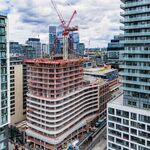cdr108
Senior Member
Kenny,
The quote posted I don't believe was by me or if it was, it is out of context. This does not represent my view for the record. I agree with your conclusion however there are bubbles and bubbles. 70% in 10 year hardly compares to 500% in Ireland in 12 or 300% in Florida from 2000-2006.
I believe if I posted this I was referring to either a longer than 10 year period or alternatively 3% which economist say is sustainable. What will happen is if house prices don't rise, more income will go towards housing and perhaps less people will buy. The whole thing may implode but even this 3% I could justify.
That said, I agree with you that 70% of 10 years is not long term sustainable but I have always maintained this position. Perhaps you could refer me to which of my posts I put this in?
Thanks.
it was actually in the post contributed to Jamie Johnson at Remaxcondosplus' January report, so it was JJ's words, not interested.
JJ's assertion that 3% per year are sustainable by economists in the long term is partially true, as that usually includes inflation, while JJ excluded it in his calculations.
in addition, his choice of building/unit for comparision is ideally selective as older buildings (77 Harbour Square is 25+ years old) tend to appreciate less than newer (<10 years old) products.
50% in 10 years is long term sustainable, 70% not so much; but my observations of pricing of dt Toronto units (in C1, C2, C8, C9) has been increases of 100-150% over the past 10 years.




